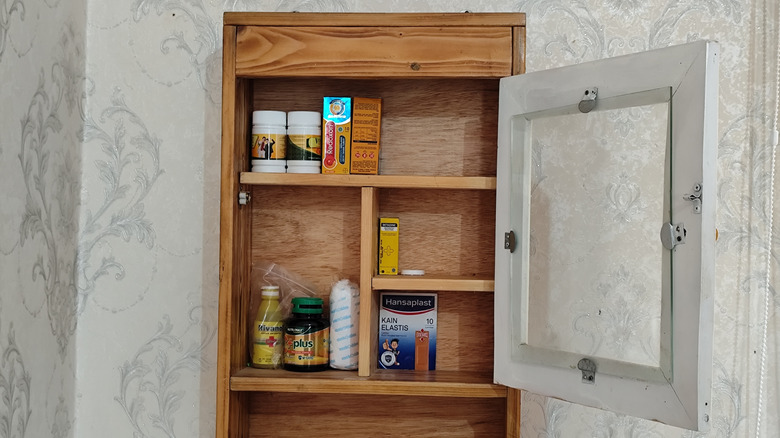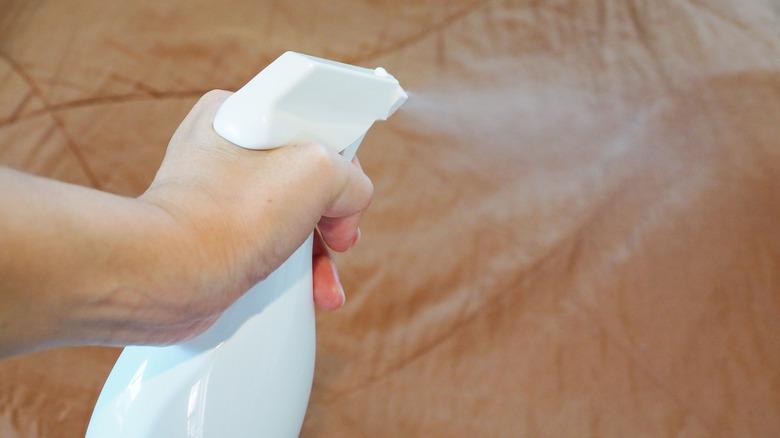The Affordable Way To Remove Pests From Your Home That's Hiding In Your Medicine Cabinet
When most of us encounter unwanted critters around the house, we are quick to search (whether in-store or online) for a mass-marketed product promising to deter the pests. However, there are often answers already hiding in your home that are a lot cheaper than name-brand insecticides or calling your local pest control company. One affordable defense you likely have in your cabinet is isopropyl alcohol or rubbing alcohol as it is commonly known. Mitigating bugs is just one of many clever ways to use rubbing alcohol around the house, and it's an effective ingredient (to varying degrees) in repellents for everything from bed bugs to rats.
It's important to mention that rubbing alcohol is highly flammable, so always take care when using it for household tasks. Don't use it around open flames, and don't soak furniture or other materials with it. Also, avoid mixing rubbing alcohol and bleach at all costs to avoid a dangerous chemical reaction. Instead, a spray bottle with a mixture of diluted rubbing alcohol and a few drops of essential oils can serve as a temporary pest deterrent with immediate results. It is particularly lethal to soft-bodied bugs, as the rubbing alcohol will dehydrate and kill them. However, a big caveat to using rubbing alcohol in this way is that it requires direct contact with the critters to be effective.
Using rubbing alcohol around the house to thwart pests
If you get a direct hit, bed bugs, stinkbugs, and roaches can be eliminated with rubbing alcohol. To make your own DIY rubbing alcohol pest spray, dilute the alcohol in water by at least half, using a 1:1 ratio. You can dilute it further for more sensitive areas, or you can mist straight rubbing alcohol for serious infestations.
It can also kill house plant pests like mealybugs, spider mites, and aphids. Not all plants tolerate rubbing alcohol, so you may want to use a more diluted mixture and be sure to do a patch test before spraying your plant. It's best to rinse the alcohol off with several sprays of plain water after a few minutes.
Aside from dehydrating bugs upon direct contact, rubbing alcohol can deter other pests — including rodents — when mixed with essential oils like eucalyptus, lavender, and mint. To make your own rodent repellant spray, mix 1 cup of water, 2 teaspoons of rubbing alcohol, and 30 drops of essential oil in a spray bottle. The alcohol primarily serves as an emulsifier in DIY repellents, meaning that it helps distribute the other ingredients evenly in a water-based mixture. So while it is an important ingredient, it's not what actually deters pests. Most often, DIY pest repellents rely on the fragrances from essential oils to do the heavy lifting and keep critters at bay. As such, these sprays are temporary deterrents at best and need to be frequently reapplied.

